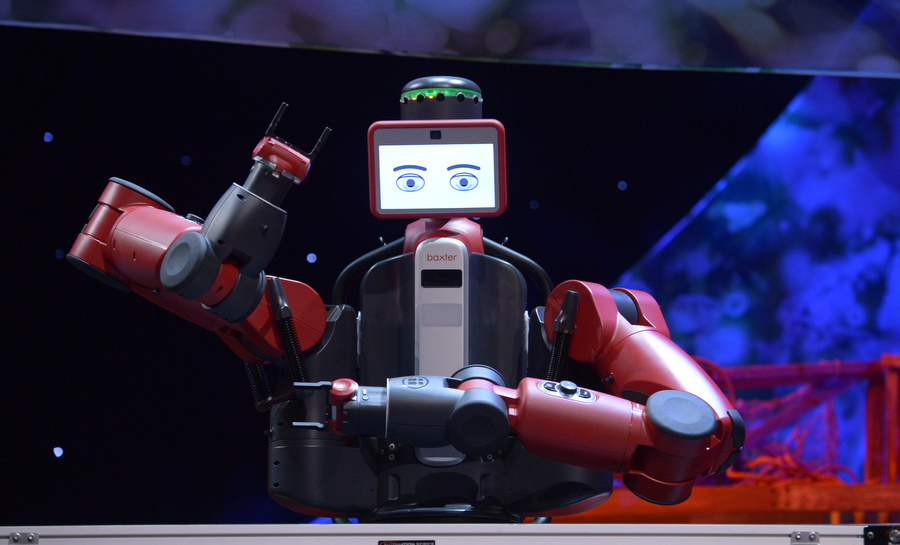We’ve heard a lot about robots at TED over the years. Demos of amazing specialized robots … talk about what robots can and can’t do … and will they take jobs from humans and is that a good or a bad thing? What’s missing is a concrete example of a multi-purpose robot that can indeed do many tasks. Well, it’s time to meet a general robot that can possibly be that.
Rodney Brooks is a roboticist who invented the Roomba. Now he heads Rethink Robotics, whose mission is to apply advanced robotic intelligence to manufacturing and physical labor.
He begins with the often-repeated observation that demographic changes are happening quite quickly. For him, in light of that, the question isn’t, “Are robots coming too fast?” but rather, “Are we getting robots soon enough?” Invoking Amara’s Law, “We overestimate tech in the short term and underestimate in the long term”; he points out that we have no idea where robotics will take us. For example, in 1957 librarians were worried about losing their jobs to computers, but that didn’t happen for many, many years. On the other hand, at the time they had no idea the changes that were to come.
So, there are amazing robots now — robots that work in war zones and hospitals. For example, in hospitals, there are robots that move laundry around and free up nurses to do medicine. Or take spreadsheets. One of the amazing things about them is that they treated an ordinary worker as capable of programming, freeing them from basic calculation.
Brooks says in the past factory robots awee viewed differently. Ordinary people can’t interact with them, they take advanced mathematics to set up and use, they’re dangerous around humans. And that is partly why they are feared.
And with that, Rodney Brooks introduces us to Baxter. This is a robot that is designed to be easy to work with. It has common-sense rules and design elements that make it feel natural. For example, it has eyes that look ahead to where the robot is about to move, so humans know what it’s going to do. It also has rules to ensure it doesn’t hurt its operator — when its arm is grabbed, it goes into “zero-force mode.” On top of that, it’s easy to program.
That brings Brooks back to the question of whether this will take away jobs. They interviewed a number of workers. Interestingly, he says: “One of the questions we asked was: Do you want your children to work in a factory? The universal answer was no, I want a better job for my children.” The hope is that these tools, like Baxter, will elevate factory workers, and free them from repetitive tasks.
Brooks comes back to demographics. Current trends will change our world in profound ways. The percentage of adults that are working age is dropping dramatically. That means that there will be more people competing for services. But more than that, the caregivers themselves are getting older and older. For Brooks, robotics can help this tremendously. A robot that can assist elderly people gives those people a chance to have dignity by having control, so they don’t have to rely on people.
So, rather than being fearful, Brooks thinks, “We will all come to rely on robots over the next 40 yrs as part of our daily lives.”
Rodney Brooks’ talk is now available for viewing. Watch it on TED.com »


Comments (9)
Pingback: Robotics & Unemployment | Digital Media & Cyberculture
Pingback: Moravec’s Paradox, Rodney Brooks and Marvin Minsky | lberasi
Pingback: Could This Robot Save Your Job? | New 2000
Pingback: EMAILS & NEWSLETTERS FORUM | Could This Robot Save Your Job?
Pingback: Could This Robot Save Your Job? | eJumo
Pingback: Wizmo Blog » Blog Archive » Robots as part of daily life: Rodney Brooks at TED2013